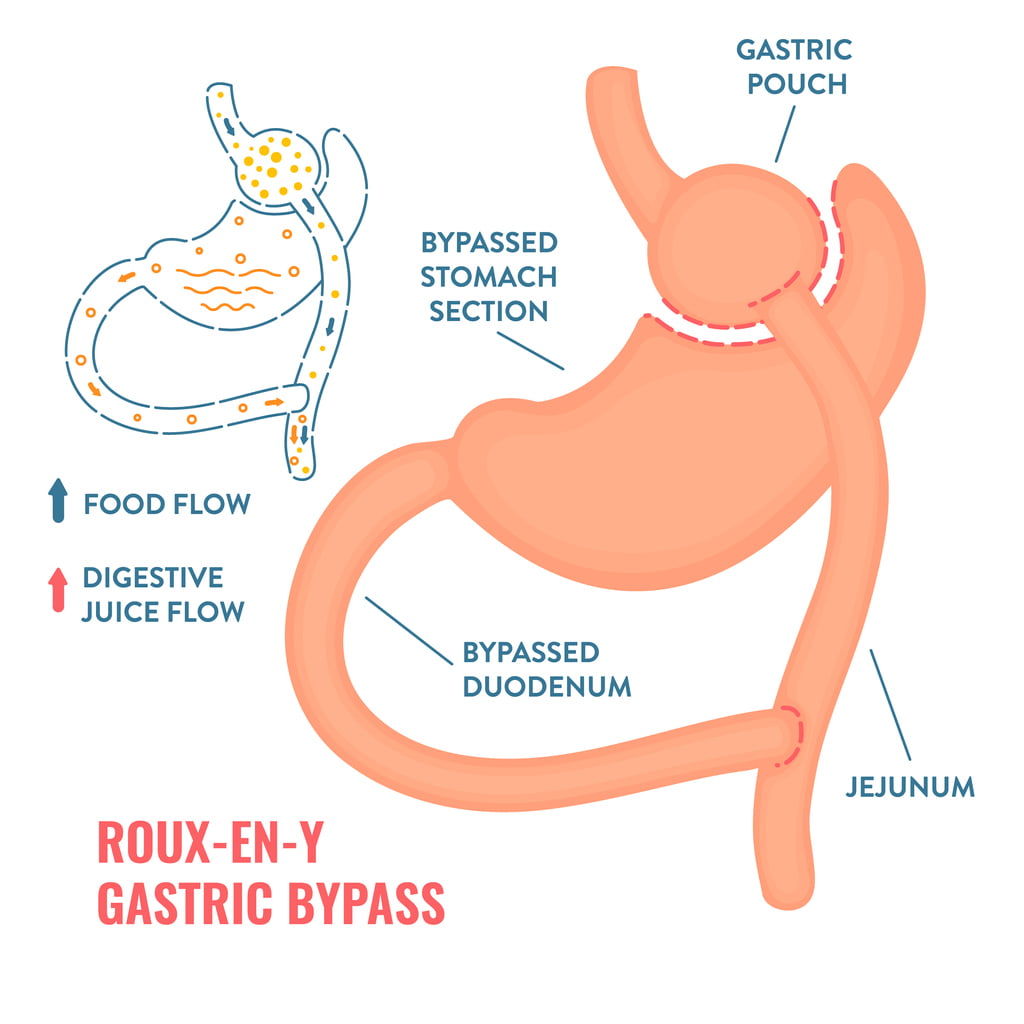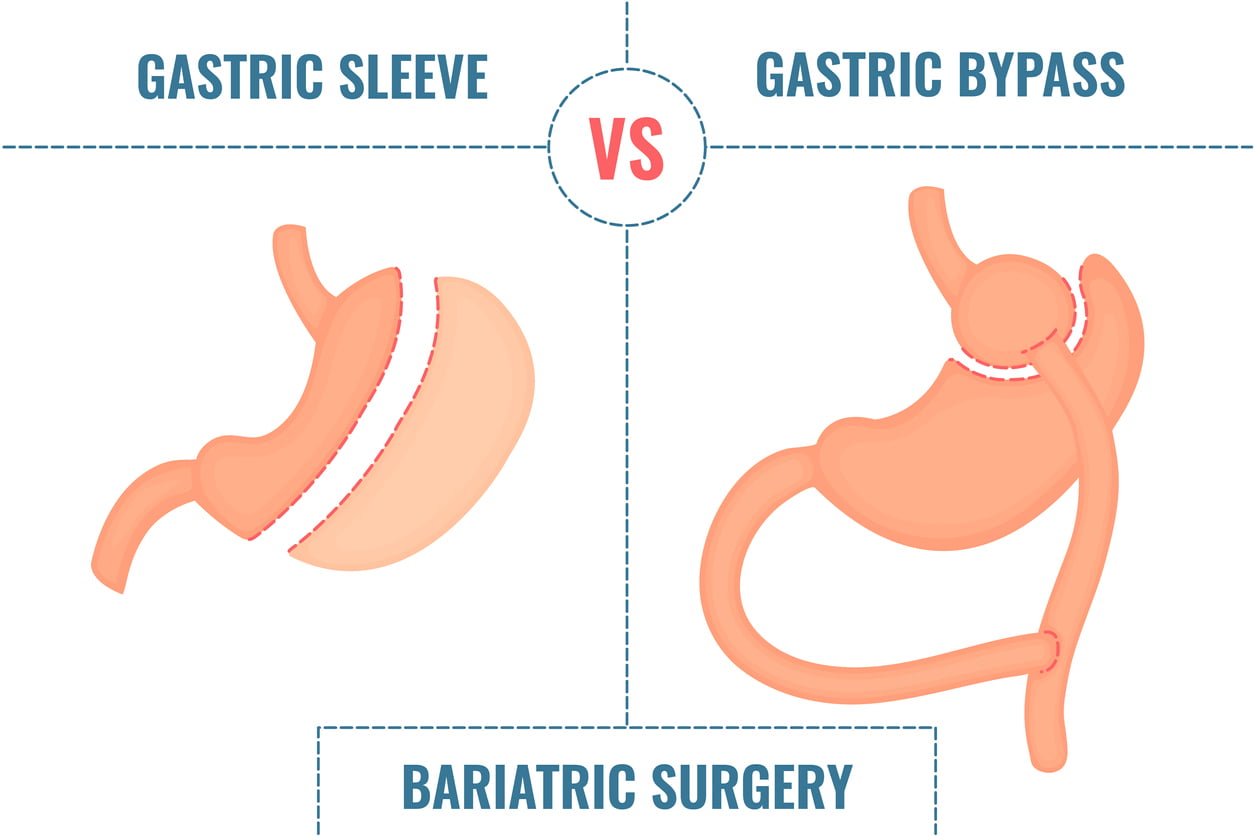
 From diminished self-esteem and insecurities to health concerns and discomfort, excessive body fat can harm your physical and mental health. If you’ve been trying to lose weight with traditional methods, like diet and exercise, to no avail, we understand how frustrating it can be. However, weight loss surgery may be your long-awaited solution!
From diminished self-esteem and insecurities to health concerns and discomfort, excessive body fat can harm your physical and mental health. If you’ve been trying to lose weight with traditional methods, like diet and exercise, to no avail, we understand how frustrating it can be. However, weight loss surgery may be your long-awaited solution!
At BMI Surgery, we make weight loss simple with safe, effective bariatric surgeries. In this blog, we’re discussing the five types of weight loss surgery so that you can learn a little bit more about each treatment and all the opportunities available to you. Don’t waste any more time on weight loss gimmicks; discover real results with BMI Surgery and start living a healthier, happier life.
The 5 Types of Weight Loss Surgery
Laparoscopic Gastric Bypass
Since 1967, laparoscopic gastric bypass has been a tried and true method for weight loss. With gastric bypass, the stomach becomes a smaller pouch and is then attached to the small intestine, meaning this procedure combines a restrictive and malabsorptive approach. In layman’s terms, not only will your stomach be able to hold less food, but also limit the amount of calories absorbed.
Orbera Gastric Balloon®
If you’re looking for a less permanent solution to get you on track, the Orbera Gastric balloon may be right for you. Your surgeon will place a balloon inflated with saline in your stomach to increase feelings of fullness and help you navigate proper portion sizes. The balloon inflates to the size of a grapefruit but is then removed around six months after your initial operation.
Sleeve Gastrectomy
Sleeve gastrectomy, also called gastric sleeve, is one of the most popular weight loss surgeries at BMI Surgery. It relies on the restrictive method, shrinking your stomach to about two-thirds of its current size. That way, you can achieve feelings of fullness with fewer calories. At BMI Surgery, we offer laparoscopic gastric sleeves, which reduces hospital time, recovery, and overall risks.
LAP-BAND®
Like gastric sleeve, LAP-BAND is performed laparoscopically and reduces the size of your stomach. However, as the name suggests, during LAP-BAND, your surgeon will place a band around the upper portion of your stomach, thereby creating a smaller upper stomach without permanently alternating it. Your surgeon can also adjust the stomach size by injecting more or less saline into the ring through a skin port.
Revisional Weight Loss Surgery
Lastly, BMI Surgery offers revisional weight loss surgery. While uncommon, patients may slip into old habits, resulting in weight gain and other complications. Revisiting weight loss surgery can reverse or alter any previous surgeries if needed. However, to undergo revisional weight loss surgery, you must meet specific requirements to ensure any weight gain is, in fact, related to surgery, not overeating. For more information about revisional weight loss surgery, contact one of our friendly team members.
Lose Weight Fast with BMI Priority Pass
If you’re ready to lose weight in a fast, affordable, and safe way, BMI now offers Priority Pass. With this program, you can undergo your initial consultation, surgery, and initial post-op recovery in as little as three days!
You can finally lose weight for good with the help of our board-certified weight loss surgeon—with no medical weight loss preparation necessary. Dr. Long and his team can help you decide which weight loss surgery is right for you and offer a complete weight loss plan designed just for you and your needs.
Interested in Weight Loss Surgery? Schedule Your Consultation Today!
If you’re ready to lose weight for good, look no further than BMI Surgery! Proudly serving Birmingham, AL, and surrounding communities, we’re here to help you live a more fulfilling life. Call us at (205) 833-6907 or contact us online to schedule an appointment.




